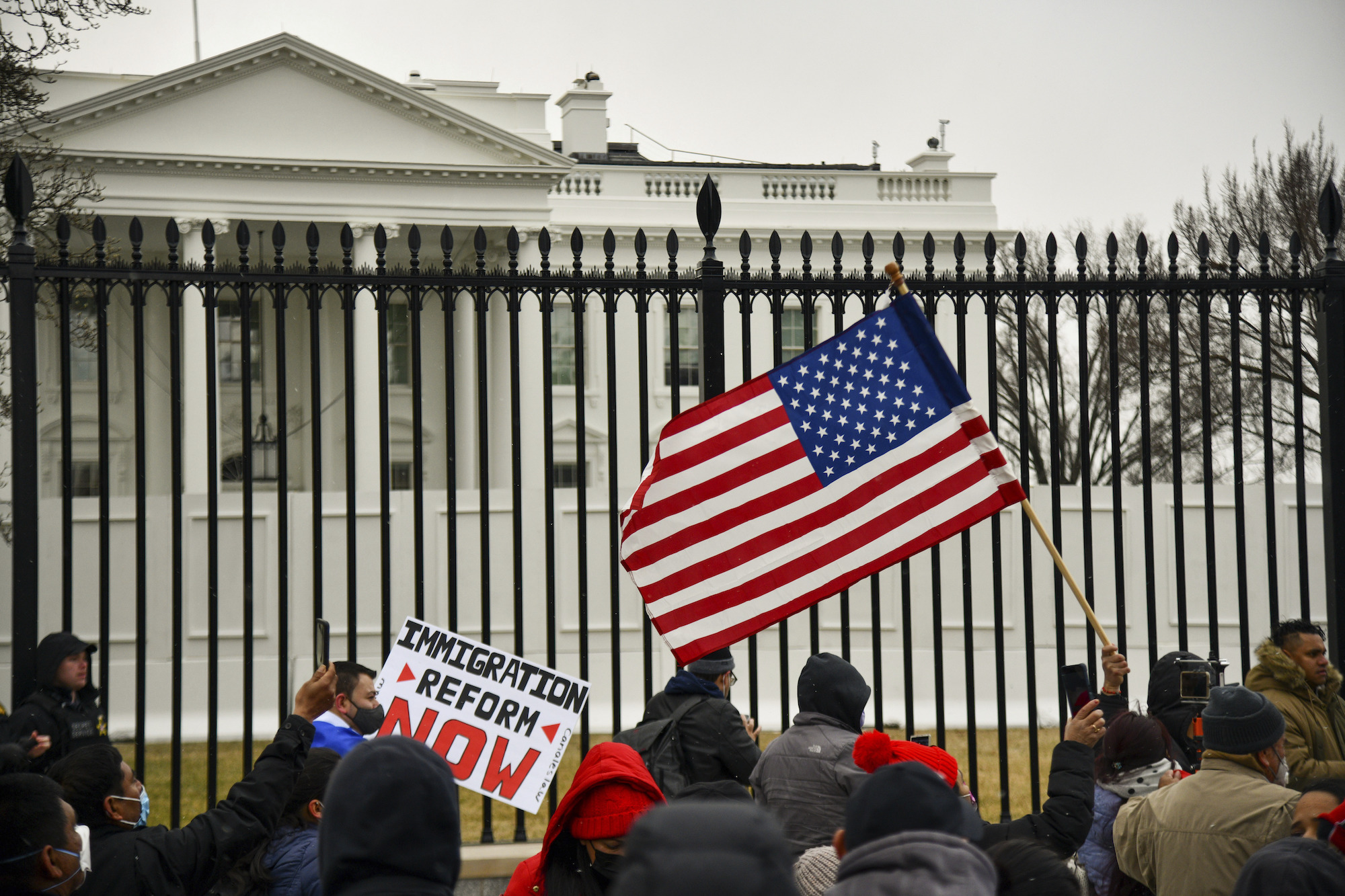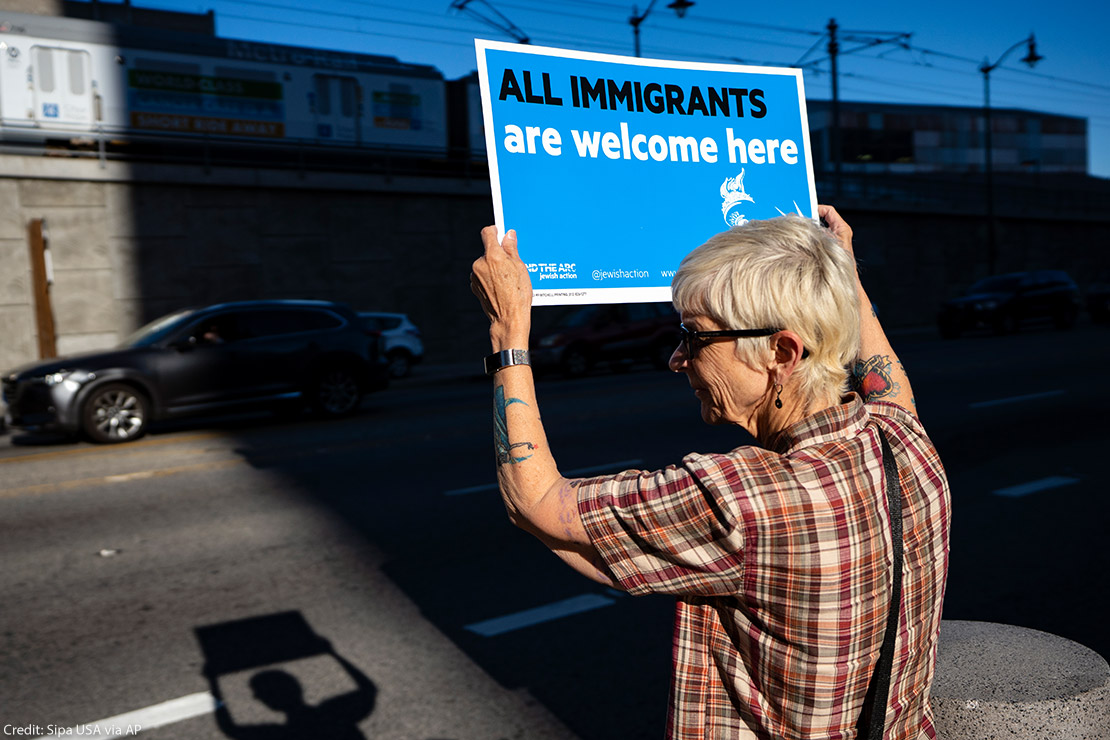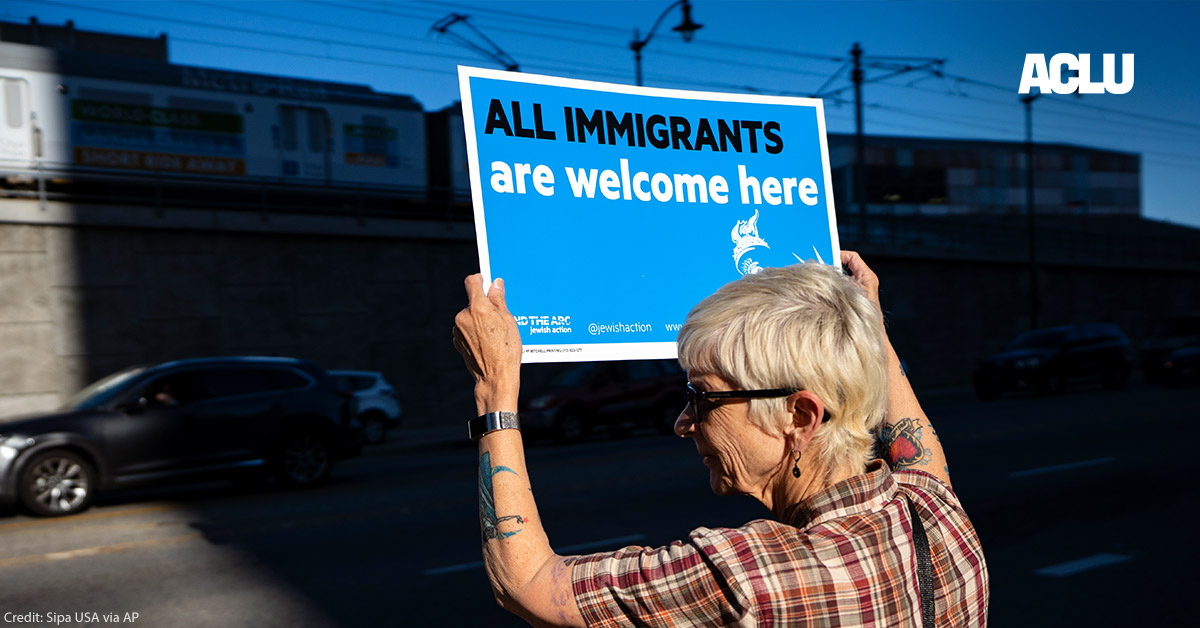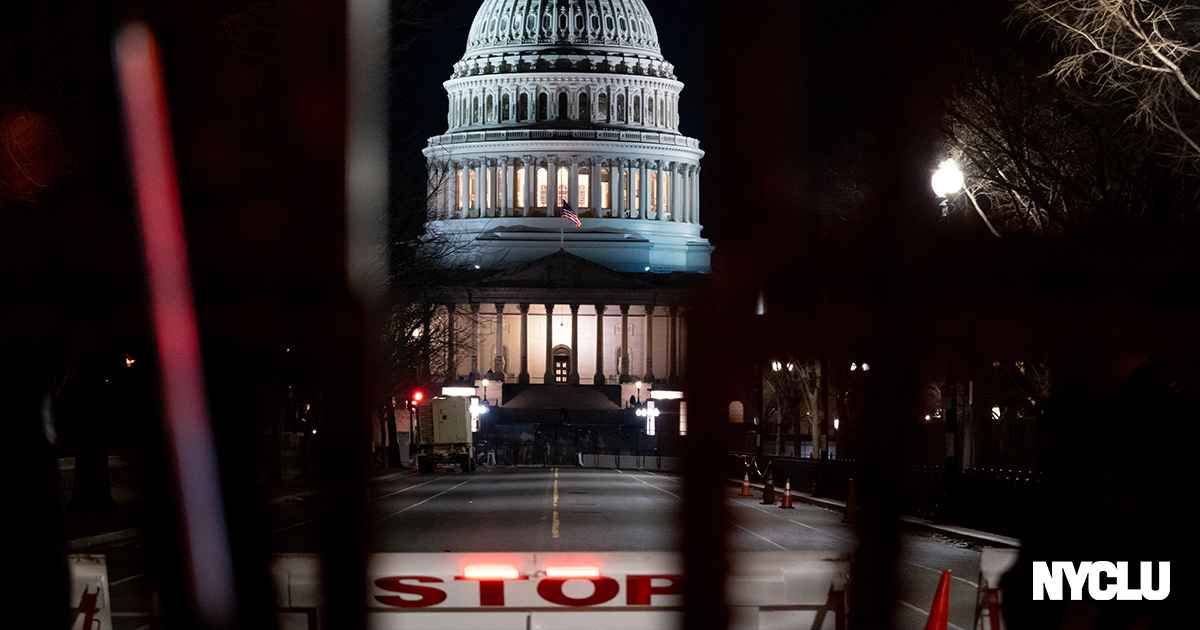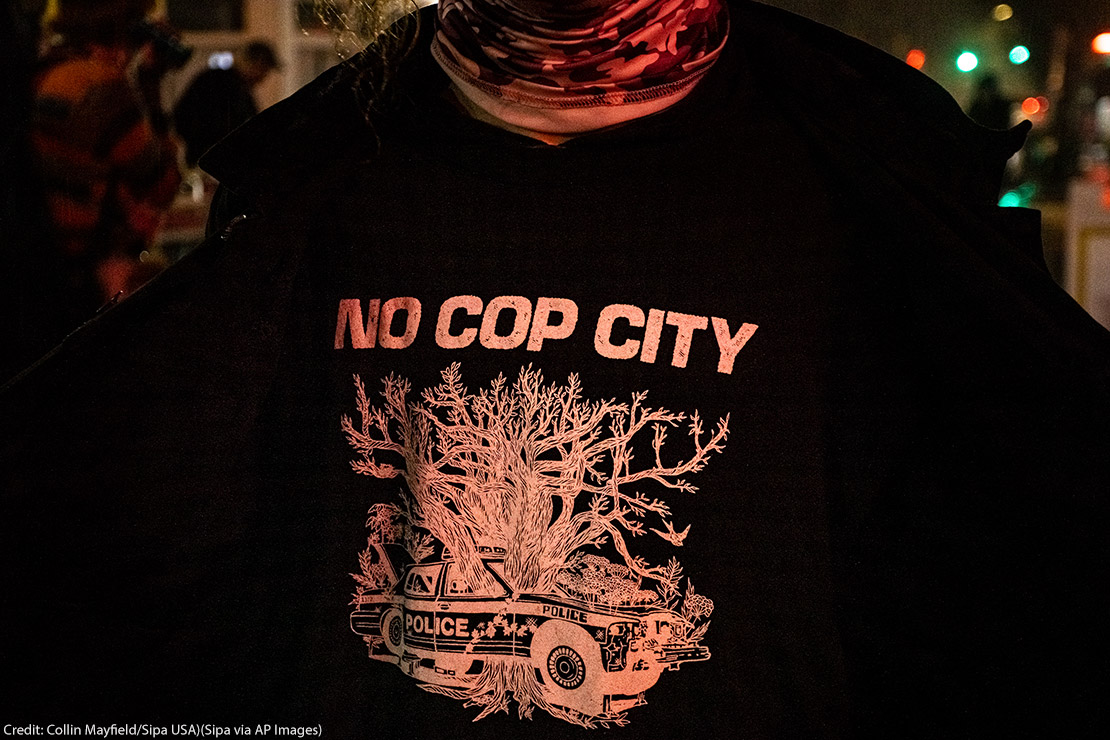At rallies across the country, community members have been chanting “Sí, se puede!” to demand that the U.S. fulfill its moral obligation to undocumented immigrants by expanding their access to life-saving medical care, job-loss benefits, driver’s licenses, and much more. However, this political advocacy — critical to our democracy’s debate about our immigration policies — could constitute a crime under federal law.
A section of the federal Immigration and Nationality Act (INA) known as the “encouragement provision” makes it a crime to “encourage” or “induce” a noncitizen “to come to, enter, or reside in the United States” unlawfully. But doesn’t the First Amendment give us the right to express our views on immigration, including by advocating for the rights of undocumented immigrants? Yes, it does, and that’s why we’re arguing before the Supreme Court to strike down this law.
Across the country, noncitizens, their families, lawyers, immigration rights advocates, and others risk violating the encouragement provision every time they debate U.S. immigration policies or even have a conversation about what resources or next steps may be available for people who are undocumented or no longer have a lawful basis for being in the U.S.
Free speech that might result in a person’s criminal prosecution under the provision include:
- A grandmother who tells her undocumented grandchild that she doesn’t want them to leave her.
- A doctor advising a patient with an expiring student visa that the patient needs medical treatment that is only offered in the United States.
- A priest informing a noncitizen parishioner whose employment authorization is ending about child-care and pantry resources that would support her remaining.
- A lawyer counseling an out-of-status noncitizen that she has the ability to become a lawful permanent resident if she does not leave the country.
- A professor advocating for DACA recipients to remain in the country no matter what so that Congress will be pressured to grant a path towards citizenship, while pointing out how her university’s policy of accepting DREAMers has enriched her teaching experience.
All that a prosecutor must prove for a conviction is that a person knew or recklessly disregarded the fact that the noncitizen’s entry or residence would be unlawful. While advocates for the provision say it will reduce unlawful entries, the government cannot enforce its immigration laws and policies by restricting constitutionally protected speech.
That’s the argument the ACLU is making this month in U.S. v. Hansen, a case that will decide whether the encouragement provision violates the First Amendment. In this case, a California man, Helaman Hansen, was convicted of violating the provision by encouraging two noncitizens to remain in the U.S. after their visas expired. Mr. Hansen’s words did not encourage a crime; residing in the country after one’s visa expires is merely a violation of civil immigration laws.
The encouragement provision did not originate in law that infringed on the First Amendment, but it has been expanded over the years to criminalize speech merely advocating for actions that violate civil immigration laws, and are not crimes in themselves. The provision, which was introduced in its current form in 1986, was predated by historical efforts to limit foreign contract labor going back as far as the 1885 Foran Act. These earlier laws focused on prohibiting advertisements of U.S. job opportunities to noncitizens abroad. In 1952, the focus shifted to prohibiting encouraging or inducing noncitizens living outside the U.S. to unlawfully enter the U.S. It wasn’t until 1986 that Congress expanded the encouragement provision to also cover encouraging or inducing a noncitizen already present in the U.S. to remain in the country unlawfully.
In other subsections of this same federal statute, Congress criminalized harboring and transporting noncitizens who are in the United States unlawfully, or bringing noncitizens into the U.S. without authorization. While these actions are a legitimate target of government policy, the text of the encouragement provision and its expansion over the years now criminalizes everyday speech, including political advocacy, religious counsel, and legal support. Today, the provision has essentially no limits — it doesn’t require the speaker to intend a noncitizen to commit a crime, or that the criminalized speech be directed at a specific undocumented immigrant.
If the government is legally allowed to ban speech encouraging or inducing unlawful immigration, it would be empowered to ban or chill any speech that advocates violating any laws, including civil ones. Americans could lose the ability to advocate against any laws with which they disagree, including by proposing and organizing civil disobedience. Far from being a partisan issue, the fate of the encouragement provision is tied to the ability of people to criticize mask mandates, or to advocate for abortion rights. It is even linked to our access to quality journalism on pressing issues. The U.S. government has already used the provision as a justification to target journalists reporting on immigration — in particular, people arriving at the U.S.-Mexico border to seek asylum in late 2018 and early 2019 — leading to fear among journalists that they would be prosecuted for simply reporting the news.
Rather than resolve the many issues with our immigration system, the encouragement provision targets neighbors, advocates, journalists, immigration lawyers, and doctors for prosecution.
For years, the Supreme Court has recognized that the First Amendment protects us from criminal punishment for simply encouraging an unlawful act as long as we aren’t imminently inciting crime. The encouragement provision is unnecessary to serve any legitimate government interest in restricting immigration. It serves only to threaten the foundational free speech values that allow our democracy to permit dissent through vibrant and robust debate about the justness of the laws that govern us.

